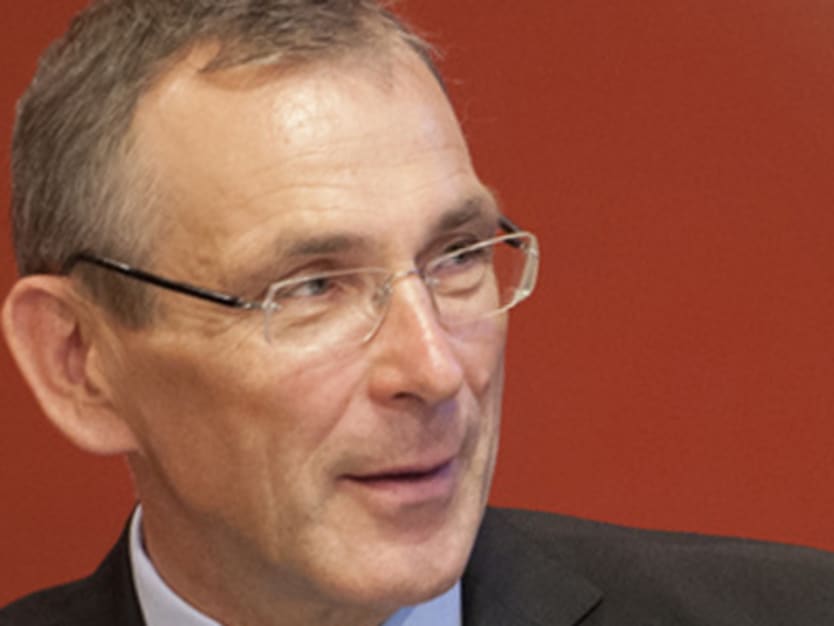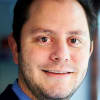
How to reduce poverty and inequality in a sustainable way — that is a challenge world leaders are reviewing now that the 2015 deadline of the United Nations Millennium Development Goals approaches.
At a Brussels event on Tuesday, Andris Piebalgs, the European commissioner for development, presented recommendations by a high-level U.N. advisory panel on post-2015 global development to an audience of researchers, aid officials and representatives from civil society and EU member states.
Piebalgs, a member of the U.N. high-level panel, also took time to answer Devex’s questions on the EU’s vision, scope and ambitions for the post-2015 development framework and the next steps in reaching international consensus.
What is the EU’s single biggest achievement in the process so far and what challenges lie ahead?
I’m particularly pleased that the high-level panel recognized the need for a single agenda embodying sustainability and development. Building on the lessons learned from the current Millennium Development Goals and taking into account the followup of the Rio+20 outcome, the panel makes it clear that the post-2015 framework should address the whole range of root causes of poverty and unsustainable development, including issues such as equality, equity, human rights, peace and stability. This is in line with the European Commission’s proposal set put in its Communication entitled ”A Decent Life for All.”
How difficult was it to reach consensus on the final report? And is it ambitious enough, or were there missed opportunities?
The report is the result of months of hard work — 27 panelists with different points of views came together with sometimes different approaches and priorities. But the result provides a valuable contribution to the ongoing debate on the post-2015 agenda. It sets out a universal agenda to eradicate extreme poverty by 2030 and ensures the sustainable development of the planet. And I think this is both ambitious and inspiring.
The report also highlights that the new agenda should apply to every country and every citizen — it should be truly universal in its application and coverage. Poverty alleviation and putting the planet on a sustainable course are relevant to everyone. It is also important that the issues of women’s empowerment, food security and nutrition, and the call for a global partnership are clearly highlighted.
The panel has been praised for its consultative approach. But can the process be described as truly inclusive for youth and the private sector?
Today’s event is a great example of the consultative approach of the process. Civil society has been with us every step of the way and we’re looking forward to working with all development stakeholders on the post-2015 road ahead. And let’s face it, it’s common to see a great majority of young people among civil society organizations these days. The report is the outcome of intensive and open discussions in the very diverse group of the 27 HLP members, who came from all parts of the world representing youth, academia, the private sector and the political domain.
“A Decent Life for All” and eradicating extreme poverty: Are these competing or complementary approaches? And what does a “decent life” mean, beyond not being in extreme poverty?
Complementary approaches, of course. Eradicating poverty is an absolute necessity, a first step towards achieving a decent life for all. But it doesn’t mean that this is our only pending task. “A Decent Life for All” sets out clearly that the next development framework should include a limited set of clear and inspiring goals, addressing not only quantitative targets, but also qualitative ones such as standards in education, nutrition, access to clean water and air. These goals should establish a floor under which no man, woman or child should fall by 2030, in order to provide a decent life for all.
Will a set of sustainable development goals be ready by the time a framework is adopted?
The Rio+20 Summit agreed a process to formulate sustainable development goals no later than summer 2014. An agreement has been reached on the setting-up of an open working group to formulate a proposal for SDGs. The OWG will present a report to the 68th General Assembly of the United Nations in September 2014. The European Union and 14 EU member states are represented in the OWG on the basis of rotating seats.
The group is in the first phase of the process and it’s already undertaking an exploratory round of SDG discussions. It started with poverty reduction and has moved on to food security, water and sanitation, health, education, decent jobs and social protection at its first two meetings. The co-facilitators have indicated that after this first round, by February-March next year, the group should move to begin to discuss its report to the General Assembly.
Is there a current major policy incoherence that you would like to see tackled through the new framework?
I wouldn’t say policy incoherence, but it’s true that the world has changed profoundly since the MDGs were set up in the year 2000 and to fulfil our vision of promoting sustainable development, we must go beyond them. For example, they didn’t focus enough on reaching the very poorest and most excluded people and they didn’t consider well enough the devastating effects of conflict and violence on development. The importance to development of good governance and institutions that guarantee the rule of law, free speech and open and accountable government wasn’t sufficiently highlighted, nor was the need for inclusive growth to provide jobs.
That’s why the HLP report sets out a roadmap to fill key gaps in the MDG process and sets out the absolute necessity of a universal agenda to eradicate extreme poverty by 2030 and to ensure sustainable development of the planet.
How will you ensure that the emerging global development framework does not cut down on the level of ambition of the MDGs regarding social sectors?
This cannot be achieved without a global approach that, with the main responsibilities remaining with the member states of the United Nations, takes into account governments at all levels, the private sector, civil society and citizens. It’s also important that at EU level, the recently adopted Conclusion clearly stressed that “the eradication of poverty in all its dimensions” and the promotion of sustainable development are intrinsically linked, mutually reinforcing and should be integrated into the single overarching post-2015 framework we proposed in our Communication earlier this year.
While universal health coverage and the right to health itself both garnered much support as potential goals, they were not included in the report. Why not?
I agree that more emphasis should be put on the critical issue of universal health coverage and could have been added as one target in the report, particularly since 30 percent of the population have either inadequate or no access to functioning health systems. This represents a prerequisite to just, peaceful and sustainable societies.
However, it’s important to note that although the HLP recommendations are a proposal for the next development agenda, other concrete targets or priority areas could be agreed in the discussion process that is still ongoing.
How can the EU convince skeptics that a truly universal approach will not dilute the future framework?
I don’t agree that a universal agenda will dilute a future framework. In fact, emphasizing that all countries will have to take on responsibilities will make the framework more complete! In recent decades, it has become more and more obvious that the challenges we face can only be tackled if every country takes on responsibilities — this includes all economies, whether developed, emerging or developing.
A universal agenda will not dilute a future framework but will actually refocus it. In order to give due attention to the challenge of global environmental degradation, for instance, the EU is advocating for merging the tracks on poverty eradication and sustainable development — we can’t tackle one without tackling the other. And this means adopting our global priorities.
What new initiatives will be launched to overcome the unfinished business of “off-track” Millennium Development Goals, especially MDG 5 on improving maternal health and MDG 8 on forging a global partnership for development?
The Commission has always directed its development policy towards eradicating poverty and achieving the MDGs. This mission stems from the Lisbon treaty, the European Consensus on Development and is an integral part of the implementation of the Cotonou agreement.
The most fundamental initiative to accelerate MDG achievement is certainly the Agenda for Change, the Commission’s blueprint on development policy which refocuses our aid to help those sectors and countries that need it most. It’s an important step towards increasing the effectiveness of our cooperation and to help create the basis — human rights, good governance and inclusive and sustainable growth — for accelerated progress on the MDGs. So in a way, the current implementation of the Agenda for Change is our contribution to accelerated MDG achievement.
Looking at a concrete example, the €1 billion MDG Initiative, which focuses on the MDGs most off track in countries that need the most support, is currently being implemented and will support 46 countries. From the Commission’s perspective, accelerating progress towards MDGs is not a question of creating new initiatives but of properly implementing existing ones.
Are we in danger of focusing too much on economic growth at the expense of issues such as equity and access to resources?
No, because the HLP report strongly emphasizes the issue of inequalities, stating that the new agenda “must tackle the causes of poverty, exclusion and inequality.” The report also clearly indicated that targets would only be considered achieved if they are met for all relevant income and social groups. The promotion of equity and access to resources is also stressed by the report as being a key driver to meet our ambitions.
What role do you envisage for south-south cooperation, particularly among developing and emerging economies?
Although information on south-south cooperation is still scarce, the estimates show that it is already a significant financial source for some developing countries. So it will be one important element to be covered in the financing framework for post-2015. The post-2015 framework should move towards a true partnership approach — and this involves increased, better and more transparent cooperation between developing countries, too.
In this context, I think it’s welcome that in Busan, emerging economies — the main drivers of south-south cooperation — signed up to follow the key principles of aid and development effectiveness, such as country ownership and leadership. A shift from “aid for development” to a “partnership for development” took place. As stated in the Council Conclusions of 2010, the EU shares the need to move beyond the traditional north-south perspectives that no longer capture the current and prospective aid architecture.
But does this prospective aid architecture mean a reduced EU aid commitment?
The fact that we support stronger south-south cooperation doesn’t mean that we’ll move away from our commitments. Indeed, the EU and its member states recently reaffirmed their individual and collective official development assistance, or ODA, commitments. South-south cooperation should be regarded as enriching and complementing “traditional” development cooperation, but it doesn’t replace it.
Look out for further Devex coverage of the European Development Days 2013, the European Commission’s flagship forum on development, taking place on Nov. 26 -27 in Brussels, Belgium. For more information on EDD13, visit eudevdays.eu.






